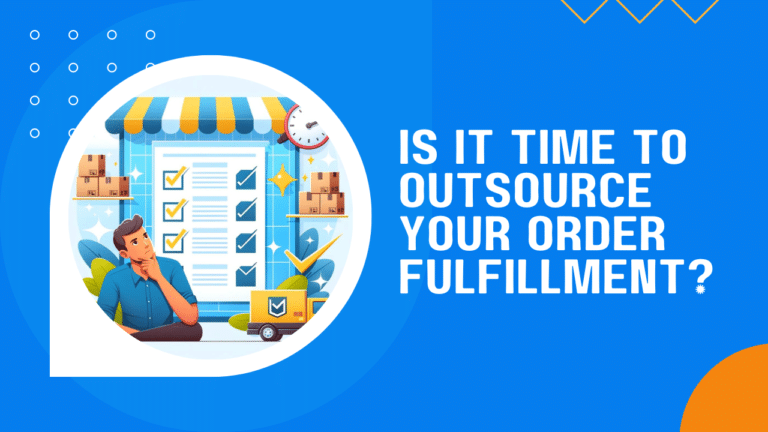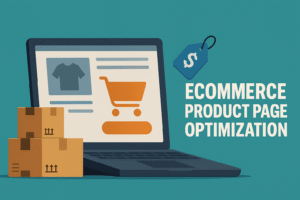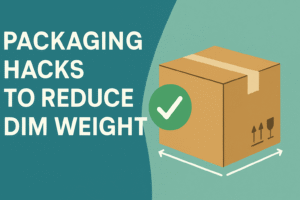Deciding whether to outsource your order fulfillment can be a crucial decision for your ecommerce business. As your company grows, handling logistics in-house can become increasingly complex and resource-intensive. Outsourcing to a third-party logistics provider (3PL) offers a potential solution, but how do you determine if it’s the right move? This article presents five critical questions to help you evaluate your current fulfillment processes and decide if outsourcing could enhance your operational efficiency and customer satisfaction. By addressing these key considerations, you can make an informed decision that aligns with your business goals and growth trajectory.
Why Consider Outsourcing?
Outsourcing order fulfillment can significantly benefit ecommerce businesses, especially as they scale. Here are some common reasons why businesses consider outsourcing:
1. Cost Efficiency:
Managing fulfillment in-house can be quite costly, encompassing a range of expenses such as warehouse space, labor, packaging materials, and technology investments. These costs can quickly add up, straining a business’s financial resources. By outsourcing order fulfillment, businesses have the opportunity to convert these fixed costs into variable costs, which means they only pay for the services they actually use. This approach can lead to more efficient and flexible financial management.
Additionally, third-party logistics providers (3PLs) often benefit from economies of scale, enabling them to offer competitive pricing on shipping and handling. This advantage can significantly reduce overall fulfillment costs for businesses. By leveraging the capabilities and resources of 3PLs, companies can streamline their operations and achieve cost savings that would be difficult to attain through in-house management.
2. Focus on Core Activities:
Outsourcing fulfillment enables businesses to concentrate on their core activities, such as product development, marketing, and customer service. By shifting the focus away from the intricate logistics tasks, companies can channel their energy and resources into areas that drive business growth and innovation. This strategic allocation of attention can lead to significant improvements in overall performance and market presence.
By delegating the complexities of logistics to experts, businesses can free up valuable time and resources. This allows them to enhance their competitive edge, as they can devote more effort to refining their products, reaching new customers, and providing exceptional service. Ultimately, outsourcing fulfillment can be a catalyst for accelerated business growth and sustained success.
3. Scalability:
As your business grows, the demand for efficient order fulfillment increases. Outsourcing offers the flexibility to scale operations up or down according to demand without requiring significant capital investment. This adaptability allows businesses to respond quickly to changing market conditions and customer needs.
Third-party logistics providers (3PLs) are well-equipped to manage fluctuations in order volume, ensuring that fulfillment capabilities align with business needs during peak seasons or promotional periods. By leveraging the resources and expertise of 3PLs, businesses can maintain efficient operations and meet customer expectations, regardless of the scale of demand.
4. Access to Advanced Technology:
Third-party logistics (3PL) providers utilize advanced technology and software for inventory management, order processing, and tracking. These sophisticated systems offer a level of accuracy and efficiency that surpasses traditional manual processes. By integrating these technologies, businesses can significantly improve order accuracy, minimize errors, and enhance the overall customer experience.
Leveraging the advanced technology provided by 3PLs enables businesses to streamline their operations and maintain a high standard of service. This not only boosts operational efficiency but also ensures that customers receive accurate and timely orders, leading to increased satisfaction and loyalty.
5. Enhanced Customer Experience:
Quick and accurate order fulfillment is crucial for customer satisfaction, and third-party logistics (3PL) providers often offer faster shipping options and better tracking capabilities. These enhancements can lead to higher customer satisfaction and loyalty, as customers receive their orders promptly and can easily monitor their delivery status.
Outsourcing fulfillment also improves the handling of returns, ensuring a smooth and hassle-free process for customers. This efficient management of returns is vital for maintaining a positive brand reputation, as it demonstrates a commitment to customer service and builds trust. By leveraging the expertise of 3PLs, businesses can enhance the overall customer experience, leading to a better customer experience and long-term loyalty.
Considering these factors can help businesses determine whether outsourcing their order fulfillment process is the right step toward achieving operational efficiency and sustained growth.
This leads us to the five key questions that can guide this decision-making process.
Question 1: Do You Have the Capacity to Scale?
As your ecommerce business grows, scaling your order fulfillment process can become increasingly challenging.
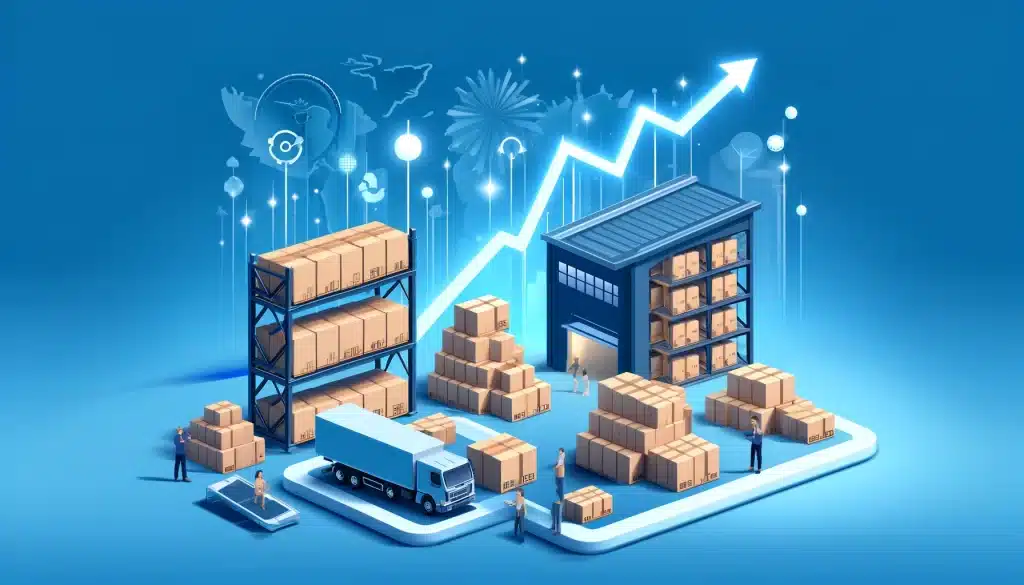
Here are key considerations to help determine if you have the capacity to scale in-house or if outsourcing might be the better option.
Current Fulfillment Capabilities:
- Assess your existing infrastructure, including warehouse space, labor force, and technology. Are these resources sufficient to handle increased order volumes, especially during peak seasons?
- If your current setup is already stretched thin, further scaling might lead to inefficiencies, errors, and delayed shipments. Outsourcing can provide immediate access to larger, more sophisticated fulfillment centers and a trained workforce ready to handle increased demand.
Flexibility and Adaptability:
- In-house fulfillment operations often lack the flexibility to quickly adapt to sudden spikes in order volumes or seasonal fluctuations. This can result in bottlenecks and reduced customer satisfaction.
- Third-party logistics providers (3PLs) offer scalable solutions that can easily accommodate varying order volumes, ensuring smooth operations even during unexpected surges in demand.
Technology and Automation:
- Evaluate your technology stack. Advanced warehouse management systems (WMS), automated picking and packing systems, and real-time inventory tracking are crucial for efficient scaling.
- 3PLs typically invest heavily in state-of-the-art technology and automation, offering businesses access to tools that enhance efficiency and accuracy in order fulfillment processes.
Cost Implications:
- Consider the financial implications of scaling in-house versus outsourcing. Expanding your fulfillment capabilities internally involves significant capital investment in additional space, equipment, and staff.
- Outsourcing allows you to leverage the 3PL’s existing infrastructure, converting fixed costs into variable costs, and often reducing overall expenses while improving scalability.
Strategic Focus:
- Reflect on your business’s core competencies. Managing fulfillment in-house can divert attention from strategic activities such as marketing, product development, and customer engagement.
- By outsourcing, you can focus on growing your business while leaving the logistics to experts, ensuring that both your operations and customer service standards are maintained at high levels.
Evaluating these aspects will help you determine whether your current fulfillment operations can scale effectively or if outsourcing to a 3PL is the more strategic choice for your growing ecommerce business.
Question 2: Are Your Fulfillment Costs Increasing?
Rising fulfillment costs can strain your ecommerce business and affect your profitability.
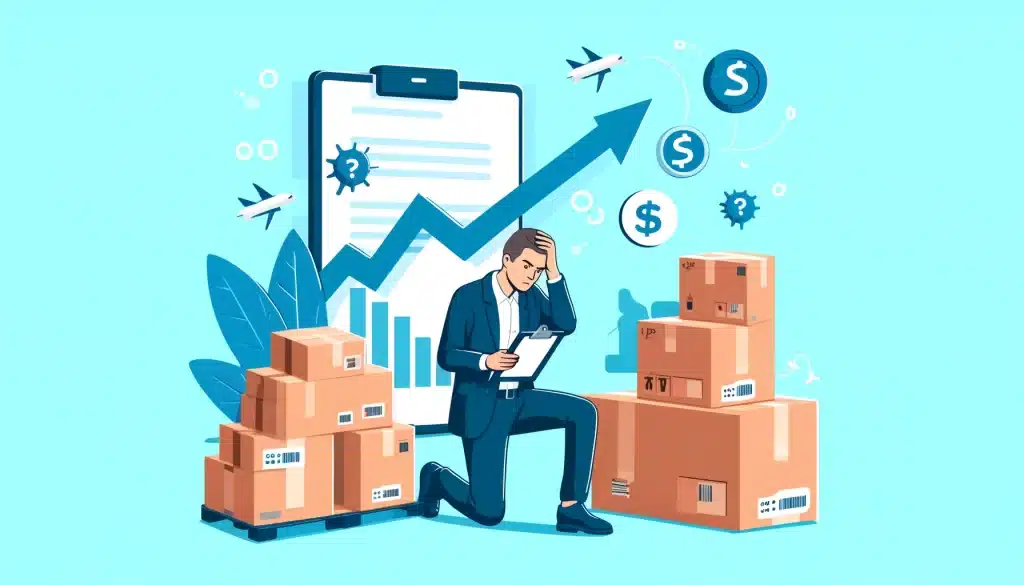
Here are key points to consider when evaluating whether outsourcing can help manage and reduce these costs:
Breakdown of In-House Fulfillment Costs:
In-house fulfillment costs can quickly accumulate, starting with labor costs. Salaries for warehouse staff, managers, and temporary workers during peak seasons can add up significantly. Additionally, overtime pay during busy periods can become a substantial expense, further straining the budget.
Storage costs also play a major role. Renting or owning warehouse space incurs ongoing expenses for utilities, security, and maintenance. As inventory grows, these costs can escalate, making it more challenging to manage finances effectively.
Packaging materials represent another significant cost. The expense of boxes, packing tape, cushioning materials, and labeling supplies tends to be higher when purchased in smaller quantities. In contrast, third-party logistics providers (3PLs) benefit from bulk purchasing power, often securing these materials at a lower cost, which can further widen the cost gap between in-house fulfillment and outsourcing.
Hidden Costs and Inefficiencies:
Inefficient inventory management can result in hidden costs and inefficiencies that significantly impact a business. Overstocking ties up capital and incurs additional storage fees, while stock outs lead to lost sales and potentially dissatisfied customers. Both scenarios are costly and can disrupt the smooth operation of a business.
Shipping costs present another challenge, as they can be highly variable and influenced by factors such as carrier rates, fuel surcharges, and shipping zones. Effectively managing these costs requires significant expertise and negotiation skills. Third-party logistics providers (3PLs) often possess the necessary experience and resources to navigate these complexities, helping businesses optimize their shipping expenses.
Cost Comparisons with Outsourcing:
Outsourcing order fulfillment can lead to more economical cost structures through variable costs. By transforming many fixed costs into variable ones, businesses only pay for the services they use. This flexibility is particularly beneficial for companies with fluctuating order volumes, as it allows them to better manage expenses in line with demand.
Additionally, third-party logistics (3PL) providers benefit from economies of scale, enabling them to negotiate better rates with carriers and suppliers. These savings are often passed on to their clients, resulting in reduced overall fulfillment costs. By leveraging the purchasing power and expertise of 3PLs, businesses can achieve more efficient and cost-effective operations.
Financial Flexibility and Predictability:
Outsourcing offers greater financial flexibility and predictability, particularly in budgeting. It provides more predictable monthly expenses, simplifying the process of budgeting and cash flow management. This predictability aids in financial planning and minimizes the risk of unexpected costs, allowing businesses to maintain more stable financial health.
Moreover, by reducing fulfillment costs, businesses can reallocate resources to other growth initiatives. Savings from outsourcing can be invested in areas such as marketing, product development, and customer acquisition, driving further growth and enhancing the company’s competitive edge. This strategic use of resources can accelerate business development and expand market reach.
Analyzing your current fulfillment costs and comparing them with the potential savings from outsourcing can provide a clear picture of the financial benefits of switching to a 3PL. By addressing these cost-related factors, you can make a more informed decision about whether outsourcing is the right move for your ecommerce business.
Question 3: Is Your Current Fulfillment Process Efficient?
Efficiency in order fulfillment is critical for maintaining customer satisfaction and optimizing operational costs. Here are key points to help evaluate the efficiency of your current fulfillment process and determine if outsourcing could improve it:
Order Processing Speed and Accuracy:
Processing Time: Assess how quickly orders are processed from the moment they are received to when they are shipped. Delays in processing can lead to customer dissatisfaction and lost sales.
Error Rates: Examine the frequency of order errors, such as incorrect items, quantities, or shipping addresses. High error rates indicate inefficiencies in your fulfillment process and can result in costly returns and exchanges.
Inventory Management:

Real-Time Tracking: Efficient fulfillment requires real-time visibility into inventory levels to avoid stock outs and overstocking. Evaluate whether your current system provides accurate, up-to-date inventory information.
Inventory Turnover: Measure how quickly your inventory is sold and replaced. High turnover rates are indicative of efficient inventory management and fulfillment processes.
Warehouse Organization:
Layout Optimization: Analyze your warehouse layout for efficiency. Are high-demand items easily accessible? Is there a logical flow from receiving to shipping? Poor layout can lead to increased picking times and decreased productivity.
Technology Utilization: Consider the technology used in your warehouse. Are you using barcode scanning, automated picking systems, or warehouse management software (WMS) to streamline operations? Advanced technologies can significantly enhance efficiency.
Shipping Efficiency:
Carrier Partnerships: Evaluate your shipping partnerships. Are you working with reliable carriers that offer competitive rates and timely deliveries? Efficient shipping is crucial for maintaining customer satisfaction.
Shipping Methods: Assess the range of shipping options you offer. Providing multiple shipping methods, including expedited and standard options, can improve the customer experience and meet diverse needs.
Returns Management:
Return Process: Efficient handling of returns is essential for customer satisfaction. Examine your return process for speed and accuracy. Are returns processed and refunds issued promptly?
Reverse Logistics: Analyze your reverse logistics capabilities. Efficiently managing the return flow back to your inventory can reduce losses and improve inventory accuracy.
Customer Feedback:
Customer Satisfaction: Collect and analyze customer feedback regarding your fulfillment process. High satisfaction rates often indicate efficient fulfillment operations.
Complaint Analysis: Identify common complaints related to order fulfillment. Use this feedback to pinpoint inefficiencies and areas for improvement.
Benchmarking Against Industry Standards:
Performance Metrics: Compare your fulfillment metrics, such as order processing time, accuracy rates, and shipping times, against industry benchmarks. This comparison can highlight areas where your process may be lagging.
Continuous Improvement: Implement a continuous improvement approach by regularly reviewing and optimizing your fulfillment processes based on performance data and industry best practices.
By thoroughly evaluating these aspects of your current fulfillment process, you can identify inefficiencies and determine whether outsourcing to a third-party logistics provider could offer the improvements needed to enhance operational efficiency and customer satisfaction.
Question 4: How Important is Speed and Accuracy to Your Business?
Speed and accuracy in order fulfillment are critical factors that can significantly impact your ecommerce business’s success. Here are key considerations to evaluate the importance of these aspects for your operations:
Customer Satisfaction:
Expectation for Fast Delivery: Modern consumers expect quick delivery times, with many opting for same-day or next-day shipping options. Slow delivery can lead to dissatisfaction, negative reviews, and lost sales. By outsourcing fulfillment, you can leverage the 3PL’s optimized logistics networks to meet these expectations more reliably.
Order Accuracy: Incorrect orders can frustrate customers and lead to costly returns and exchanges. Maintaining high accuracy in picking and packing ensures that customers receive what they ordered, boosting satisfaction and repeat business.
Competitive Advantage:
Meeting Industry Standards: In highly competitive markets, offering faster and more accurate fulfillment can set your business apart. Companies like Amazon have set high standards for delivery speed and reliability, and customers have come to expect similar levels of service from other ecommerce businesses.
Retention and Loyalty: Consistently meeting delivery promises helps build trust and loyalty, encouraging repeat purchases. A streamlined and accurate fulfillment process enhances the overall customer experience, which is crucial for retaining customers in a competitive market.
Operational Efficiency:
Reducing Errors: High error rates in order fulfillment can disrupt operations and incur additional costs. Outsourcing to a 3PL can reduce these errors through the use of advanced technology and experienced staff, ensuring more efficient and reliable fulfillment processes.
Handling Peak Times: During peak seasons or promotional events, the ability to scale quickly and efficiently is vital. 3PLs are equipped to handle large order volumes and can manage the fluctuations in demand better than most in-house operations.
Technology and Innovation:
Access to Advanced Systems: 3PLs typically invest in cutting-edge fulfillment technologies, including automated picking systems and sophisticated inventory management software. These technologies enhance both speed and accuracy, providing a more seamless fulfillment process.
Real-Time Tracking: Offering customers real-time tracking of their orders enhances transparency and trust. 3PLs often provide robust tracking systems that keep customers informed at every stage of the fulfillment process, reducing inquiries and increasing satisfaction.
Cost Implications:
Balancing Speed and Cost: While faster fulfillment can be more expensive, the cost of lost sales and customer dissatisfaction due to slow or inaccurate fulfillment can be even higher. Outsourcing helps balance these costs by providing efficient, reliable service at a scalable price.
Efficiency Gains: Outsourcing can lead to significant efficiency gains, allowing you to focus on core business activities while the 3PL handles the logistics. This can result in cost savings and improved service quality, making your business more competitive.
Evaluating the importance of speed and accuracy in your fulfillment process is crucial. By considering these factors, you can determine whether outsourcing to a 3PL will help you meet your operational goals and enhance your overall customer experience.
Question 5: Are You Struggling with Technology Integration?
Integrating technology into your order fulfillment process is essential for efficiency and accuracy. Here are key points to consider if you are facing challenges with technology integration:
Inventory Management Systems (IMS):
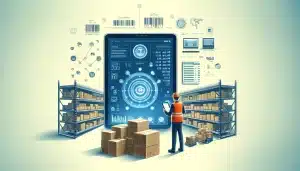
- Real-Time Visibility: Efficient order fulfillment requires real-time inventory tracking to avoid stock outs and overstocking. If your current system does not provide up-to-date inventory information, it may lead to fulfillment delays and errors.
- Automation Capabilities: Advanced IMS can automate many aspects of inventory management, such as reordering and stock level alerts, which helps streamline operations and reduce manual errors.
Warehouse Management Systems (WMS):
- Optimization: A robust WMS optimizes warehouse layout, picking, and packing processes, enhancing overall efficiency. If your warehouse operations are manual or outdated, consider implementing a WMS to improve productivity and reduce fulfillment times.
- Scalability: As your business grows, a scalable WMS can accommodate increasing volumes without significant changes to your infrastructure, ensuring seamless operations during peak periods.
Order Management Systems (OMS):
- Centralized Control: An effective OMS consolidates orders from various sales channels into a single system, simplifying order processing and reducing errors. If managing orders from multiple platforms is cumbersome, integrating an OMS can streamline this process.
- Customer Experience: OMS enhances customer satisfaction by ensuring accurate and timely order fulfillment, with real-time updates and seamless return processes.
Shipping and Logistics Technology:
- Carrier Integration: Integrating with multiple carriers can offer flexible and cost-effective shipping options. If your current system lacks this integration, it can lead to higher shipping costs and longer delivery times.
- Real-Time Tracking: Providing customers with real-time tracking information builds trust and transparency. Advanced logistics technology enables this, improving the overall customer experience.
Cost Considerations:
- Investment vs. Outsourcing: Implementing advanced technology in-house requires significant investment. Outsourcing to a 3PL can be more cost-effective, providing access to state-of-the-art systems without the upfront costs.
- Efficiency Gains: The efficiency gains from advanced technology can offset costs over time, leading to faster, more accurate order fulfillment and improved customer satisfaction.
By addressing these points, you can determine whether your current struggles with technology integration necessitate a move to outsourcing. Outsourcing can provide immediate access to advanced technologies and expertise, enhancing your fulfillment process and supporting business growth.
Making the Decision: Is Outsourcing Order Fulfillment Right for You?
Deciding whether to outsource your order fulfillment is a significant step for any ecommerce business. By asking the right questions, you can make an informed decision that aligns with your operational needs and business goals.
Evaluate Your Capacity to Scale: Assess if your current infrastructure can handle growth efficiently. If scaling in-house seems challenging, outsourcing can offer the flexibility and scalability needed to manage increasing order volumes without substantial investment.
Analyze Fulfillment Costs: Compare your in-house costs with the potential savings from outsourcing. Consider the financial benefits of converting fixed costs into variable ones and leveraging the economies of scale that 3PL providers offer.
Assess Process Efficiency: Look at your current fulfillment processes for inefficiencies and errors. A 3PL can often provide more efficient and accurate fulfillment through advanced technology and expertise.
Prioritize Speed and Accuracy: Ensure your fulfillment operations meet customer expectations for speed and accuracy. Outsourcing can help maintain high standards and enhance customer satisfaction, giving your business a competitive edge.
Consider Technology Integration: If you’re struggling with integrating new technologies, outsourcing to a 3PL might be the solution. They offer access to advanced systems that can streamline your operations and improve overall efficiency.
By carefully considering these factors, you can determine whether outsourcing your order fulfillment is the right move for your ecommerce business. Making the switch can lead to greater efficiency, reduced costs, and improved customer satisfaction, positioning your business for sustainable growth.


